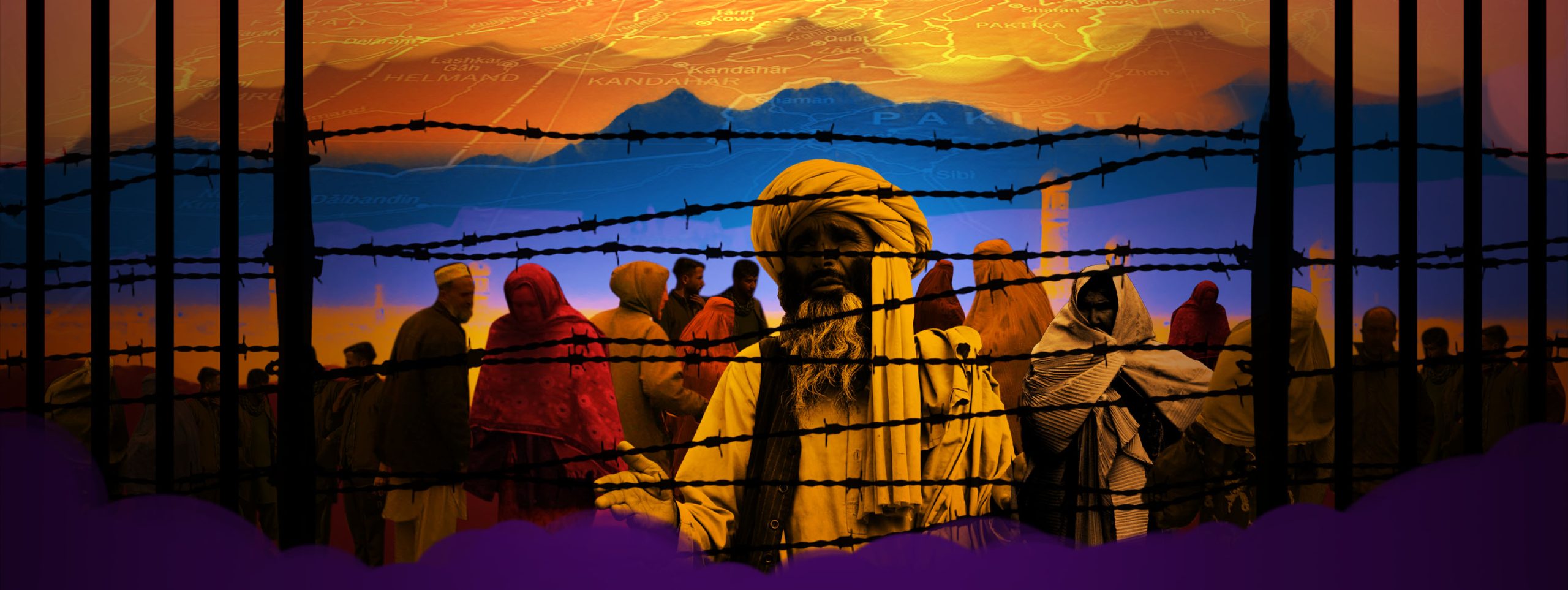|
Getting your Trinity Audio player ready...
|
A
s the circumstances deteriorate in Afghanistan, hundreds of Afghans – from government officials to activists and journalists, to members of minorities – each month continue to attempt to make perilous crossborder journeys to Pakistan or Iran. But in the last several months, those who made it across the borders have been facing increasing harassment from authorities and now fear that they will be detained or deported.
In a recent crackdown in Pakistan, police arrested thousands of documented and undocumented Afghan refugees, citing security reasons. Authorities claim that the arrested refugees have violated the Foreigner’s Act, a law amended in 2016 that gives them the power to deport foreigners who lack adequate documentation.
But lawyers representing these refugees complain that some of them have been unlawfully detained.
Human rights lawyer Moniza Kakar, who has highlighted the case of mass detentions in Sindh on her Twitter account, says that a lot of the people detained in these sweeping arrests are legally allowed to live in Pakistan. But when asked for the reason for detention, she says, the authorities falsely claim that these people are undocumented.
“Even when I show them the ID cards of these refugees, the police just refuses to listen,” Kakar says. “Families often have to bribe these officials to release their family members.”
Zarifa, a 34-year-old former judge in Kabul’s criminal court, fled from Afghanistan to Pakistan after the Taliban’s arrival at the Central Asian country’s capital in mid-August 2021. Despite holding a valid visa to be in Pakistan, Zarifa’s husband was arrested twice and each time had to bribe the officers to secure his release.
“The police picked up my husband from the bazaar (market) two months ago and held him up for more than six hours without telling us the reason,” says Zarifa. “After a few hours, they indirectly asked us to pay PKR 10,000 (US$35). He was once again arrested last month and this time we had to pay PKR 5,000 (US$18) to release him from prison.”
As the circumstances deteriorate in Afghanistan, hundreds of Afghans – from government officials to activists and journalists, to members of minorities – each month continue to attempt to make perilous crossborder journeys to Pakistan or Iran. But in the last several months, those who made it across the borders have been facing increasing harassment from authorities and now fear that they will be detained or deported.
In a recent crackdown in Pakistan, police arrested thousands of documented and undocumented Afghan refugees, citing security reasons. Authorities claim that the arrested refugees have violated the Foreigner’s Act, a law amended in 2016 that gives them the power to deport foreigners who lack adequate documentation.
But lawyers representing these refugees complain that some of them have been unlawfully detained.
Human rights lawyer Moniza Kakar, who has highlighted the case of mass detentions in Sindh on her Twitter account, says that a lot of the people detained in these sweeping arrests are legally allowed to live in Pakistan. But when asked for the reason for detention, she says, the authorities falsely claim that these people are undocumented.
“Even when I show them the ID cards of these refugees, the police just refuses to listen,” Kakar says. “Families often have to bribe these officials to release their family members.”
Zarifa, a 34-year-old former judge in Kabul’s criminal court, fled from Afghanistan to Pakistan after the Taliban’s arrival at the Central Asian country’s capital in mid-August 2021. Despite holding a valid visa to be in Pakistan, Zarifa’s husband was arrested twice and each time had to bribe the officers to secure his release.
“The police picked up my husband from the bazaar (market) two months ago and held him up for more than six hours without telling us the reason,” says Zarifa. “After a few hours, they indirectly asked us to pay PKR 10,000 (US$35). He was once again arrested last month and this time we had to pay PKR 5,000 (US$18) to release him from prison.”
Hardening stance toward refugees
Thousands of Afghans fled from Afghanistan to Pakistan after Taliban’s takeover in August 2021, joining millions of Afghans already living in the country for decades. The UN Refugee Agency (UNHCR) says that there are more than 1.4 million registered Afghan refugees in Pakistan today, while the European Union Agency for Asylum meanwhile estimates that 117,547 Afghans arrived in Pakistan between January 2021 and Aug 2022 alone.
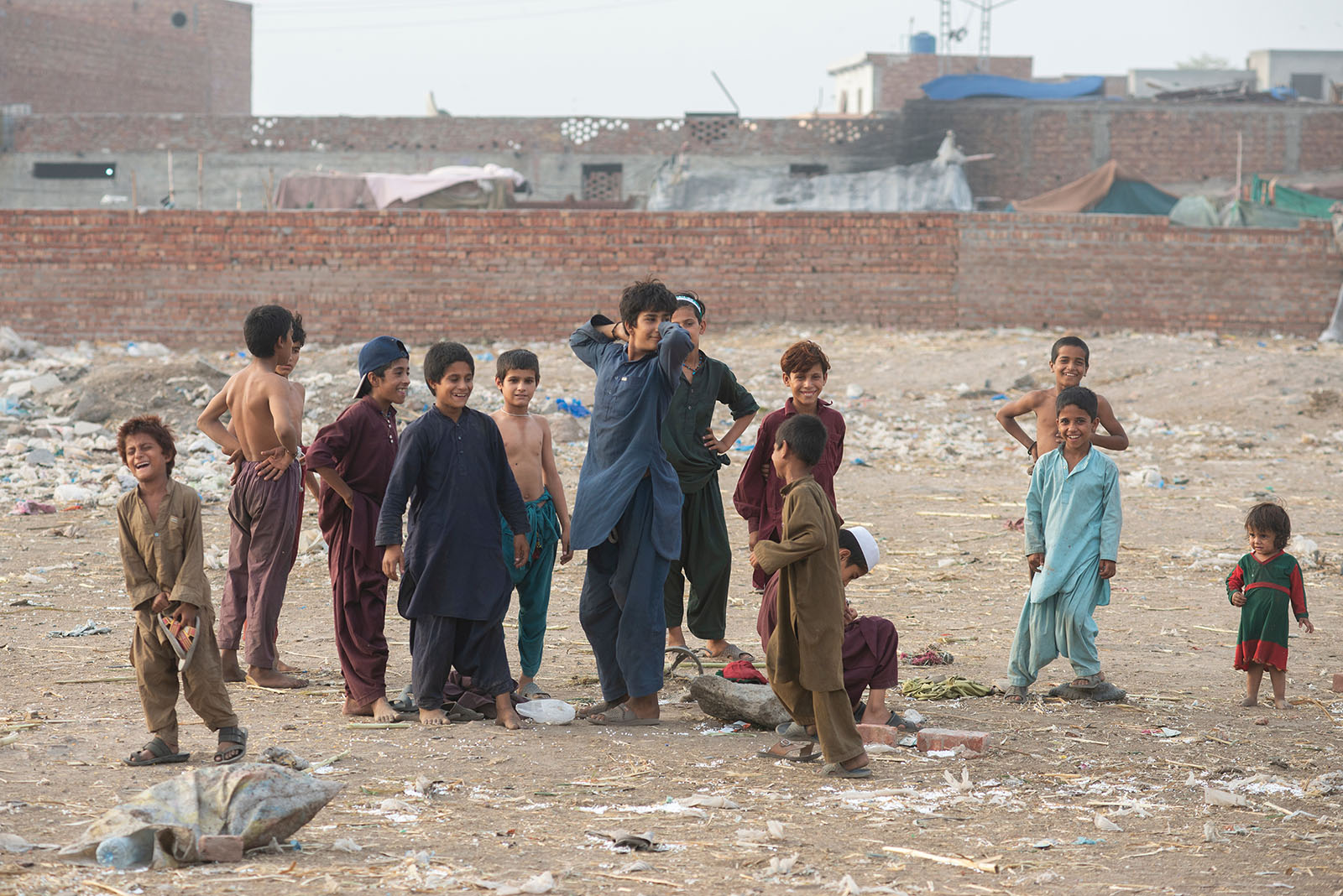
The presence of Afghan refugees in Pakistan has long been considered by many locals as a strain on their country’s economy and national resources; indications are such thinking has been getting stronger as more Afghans seek refuge in Pakistan. But the escalating attacks by the Tehrik-e Taliban Pakistan (TTP), which has links to the Taliban in Afghanistan, have also been cited as another reason for the recent crackdowns on Afghan refugees, who are apparently believed by Pakistani authorities to have militants among them.
Most Afghans who fled their homeland after the fall of the Ashraf Ghani government are educated professionals looking to resettle in another country where they can have better opportunities. Many of them are former government officials, rights defenders, and journalists who have expressed their fears of Taliban retribution. Afghan women refugees also want to escape the Taliban’s hardline approach toward female work and education.
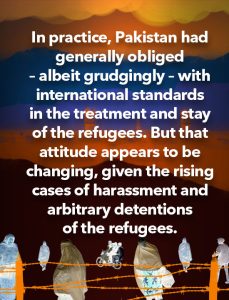 Pakistan is not a signatory of the 1951 Geneva Convention relating to the Status of Refugees, or to the 1967 Protocol. As such, the entry, stay, and movement of refugees is regulated according to the Foreigner’s Act that empowers the authorities to arrest, detain, and deport foreigners without valid documentation, including refugees and asylum seekers.
Pakistan is not a signatory of the 1951 Geneva Convention relating to the Status of Refugees, or to the 1967 Protocol. As such, the entry, stay, and movement of refugees is regulated according to the Foreigner’s Act that empowers the authorities to arrest, detain, and deport foreigners without valid documentation, including refugees and asylum seekers.
In practice, Pakistan had generally obliged – albeit grudgingly – with international standards in the treatment and stay of the refugees. But that attitude appears to be changing, given the rising cases of harassment and arbitrary detentions of the refugees.
Many Afghan refugees in Pakistan are still waiting for their visas to get to Western countries while several others struggle to afford the hundreds of dollars required to renew their Pakistani visas. These days, most of them face constant harassment and are fearful of a looming arrest.
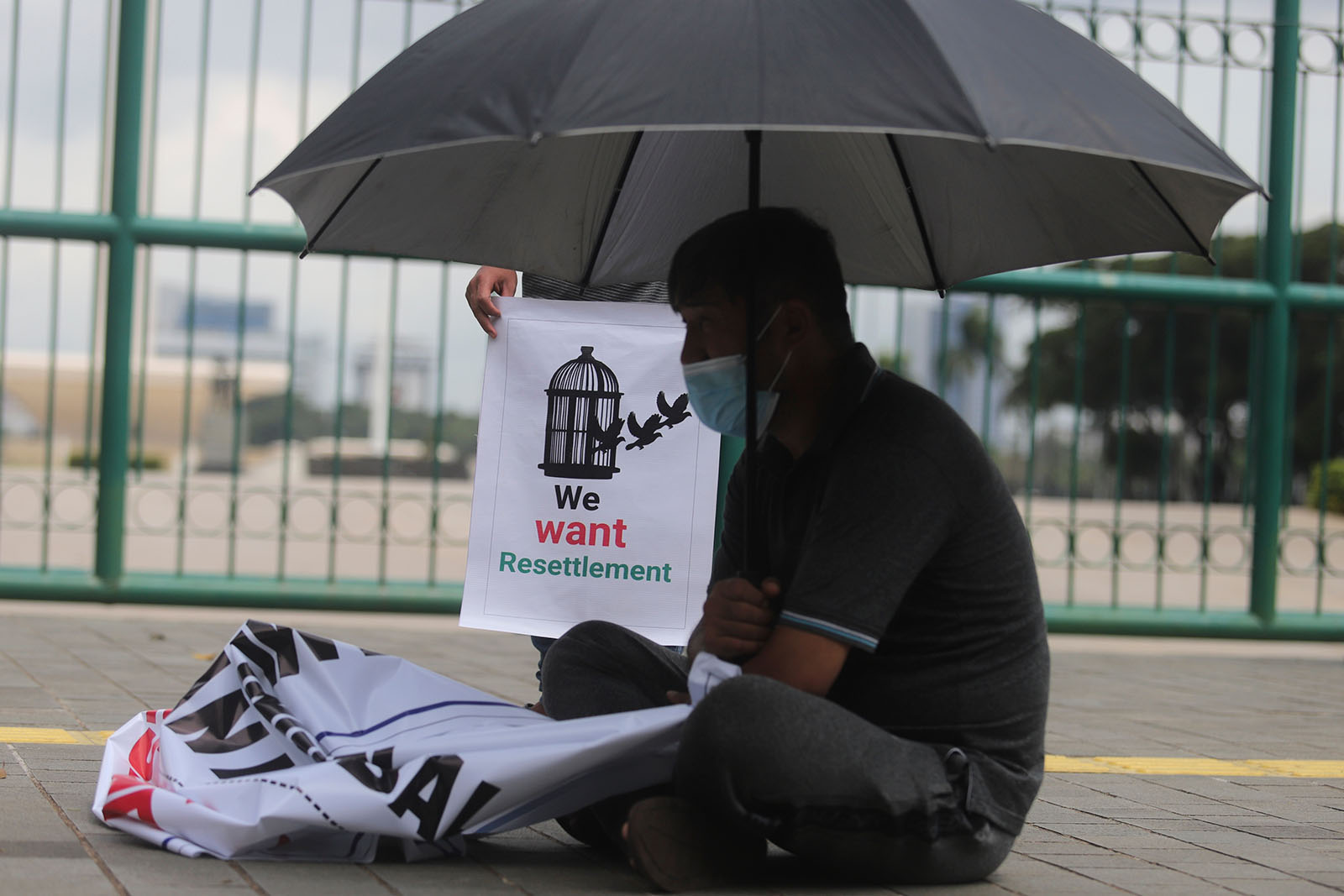
Late last year, a photograph of Afghan children behind bars in Karachi went viral in social media, triggering a public outcry. According to a report by the Dawn newspaper, Sindh Information Minister Sharjeel Memon said that the children – about 178 in all – had been staying in jail with their mothers who had been arrested for allegedly being illegal migrants. At the time, Memon said that there were 129 Afghan women in the Karachi central jail awaiting deportation. But lawyer Kakar tweeted that there were actually 139 women in the Karachi jail, and that some of them were pregnant.
Madina, also a former judge in Afghanistan before the fall of Kabul, worked in the criminal court and children’s court for eight years before losing her livelihood. Her husband, a former Supreme Court employee, began worrying for his safety and that of the rest of the family after the Taliban came to power.
The family finally decided to leave Afghanistan after they were told by a neighbor that the Taliban had come looking for them. In December 2022, they took a family visit visa for a year and left for Pakistan. But at the border, a different kind of challenge awaited them.
“We were stopped at Torkham for more than three hours,” says Madina. “The police said, ‘We want to check your visas.’ We had to pay them a bribe of PKR 2,000 (US$7) to be able to leave from there.”
Pakistani visa holders are required to make the journey to Torkham, a border point between Pakistan and Afghanistan, every two months and cross over to renew their visas. If they fail to do so, they can be detained, imprisoned, or worse, deported. But the journey to Torkham is fraught with risk, and not only because it means they would have to re-enter Afghanistan.
“We are very scared of being identified by the Taliban at the border,” Madina says. “We were judges in previous government and worry that if they find our real identities, they will arrest us. It is also expensive to go to Torkham after every few months to renew our visas. But we are forced to make that journey because we don’t want [to happen to us] what happened with Zarifa’s husband. It is a very stressful situation.”
Mass deportation
Thousands of Afghan refugees have already been deported from Pakistan since the start of this year. On 6 March alone, media reports quoted a statement released by Afghanistan’s Ministry of Refugees and Repatriation Affairs as saying, more than 3,000 Afghans returned to their country from Pakistan. Last 18 March, the Ministry tweeted that another 2,000 Afghans had returned to their homeland. The bulk of the returnees were from Iran, but 331 were from Pakistan. The latter included 70 who had been released from Pakistani jails, according to the Indian news agency ANI, quoting the Afghan Ministry of Refugees and Repatriation Affairs.
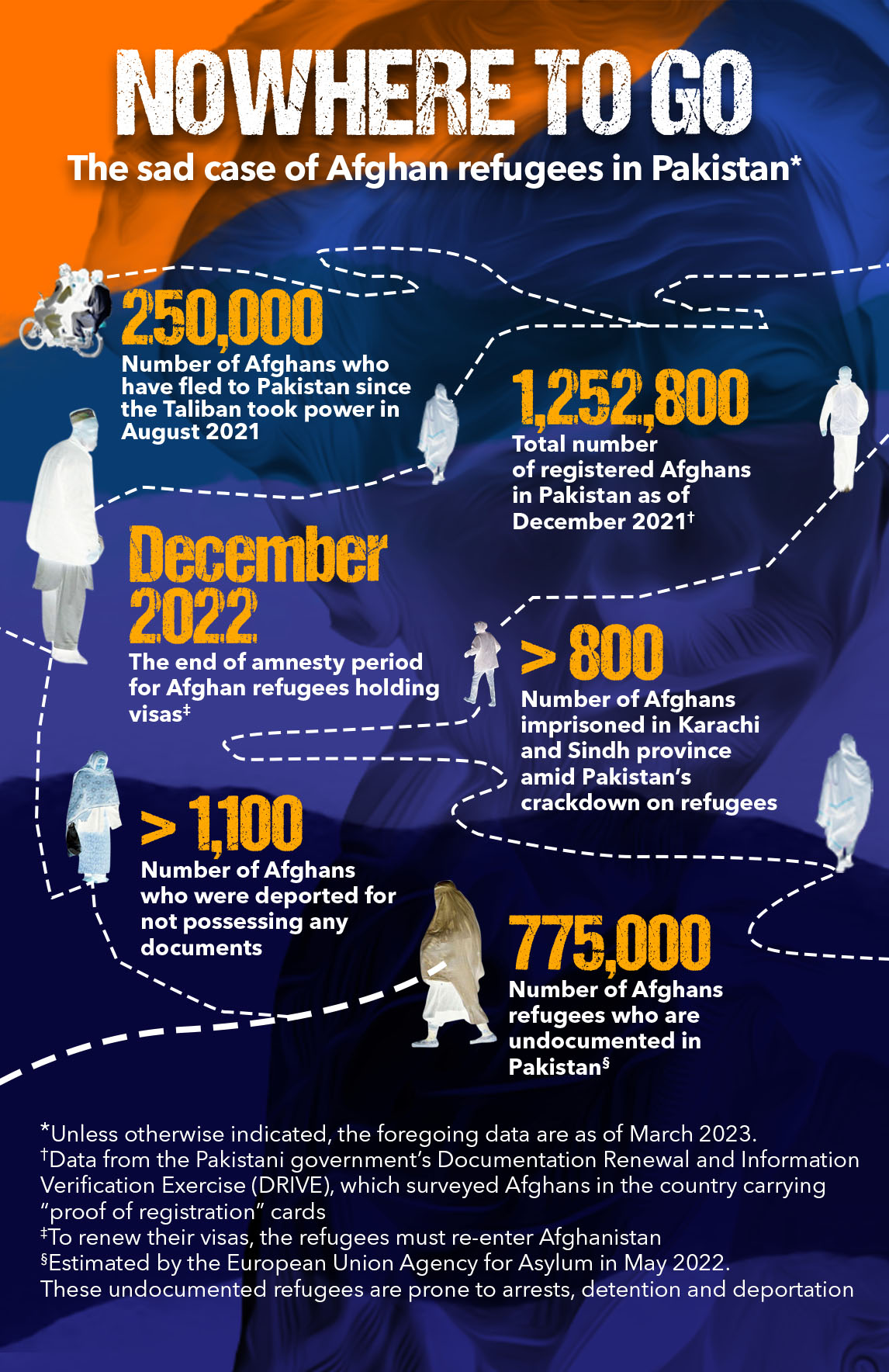
Amnesty International has urged the Pakistani government to stop arresting and deporting the refugees, and instead extend its support to them so that they can live with dignity in their host country.
In a letter to Prime Minister Shehbaz Sharif, Agnes Callamard, secretary general of Amnesty International, said that she found it alarming to note that Pakistan lacks national legislation for the protection of refugees and asylum seekers.
While commending Pakistan for hosting “more Afghan refugees than any other country in the world,” Callamard also wrote that “Amnesty International has become aware that Afghans with or without Pakistani visas are facing serious challenges due to lack of processes to regularize their stay, discrimination, and restrictions on their freedom of expression. Further, administrative hurdles to obtain identification documents or to renew visas place Afghans at risk of arrest and refoulement.”
Former Afghan judge Madina, though, thinks that it is the UNHCR that should provide them with the documents stating them as refugees, so that they would not have to face so many problems.
Qaiser Afridi, UNHCR spokesperson in Pakistan, for his part says that the UN agency is working closely with Islamabad to devise a strategy to address the problem. But he says that the latter’s response has been “weak.”
“We are discussing with the government and advising them to continue supporting Afghan refugees as they have for many years,” he says. “We continue to assert that the situation in Afghanistan is unpredictable and those who do not wish to return due to security reasons should not be deported. We have already discussed the matter with foreign ministry and the administration.”
“We understand that Pakistan is undergoing economic concerns and [a] variety of other issues,” Afridi also says. “But we want to assure the authorities that UNHCR supports them and urges the world community to also bolster Pakistan’s efforts in helping the refugees.”◉










